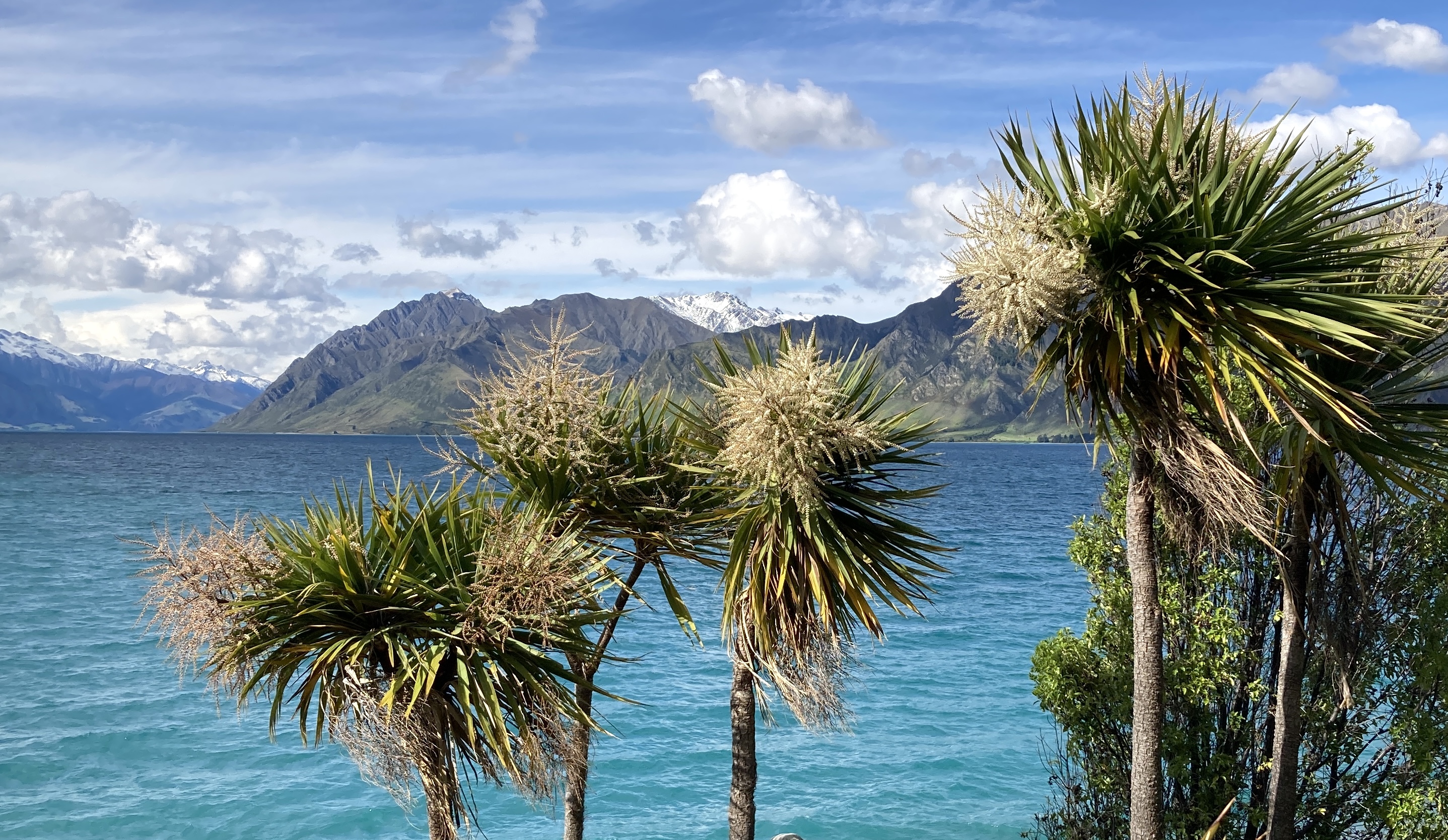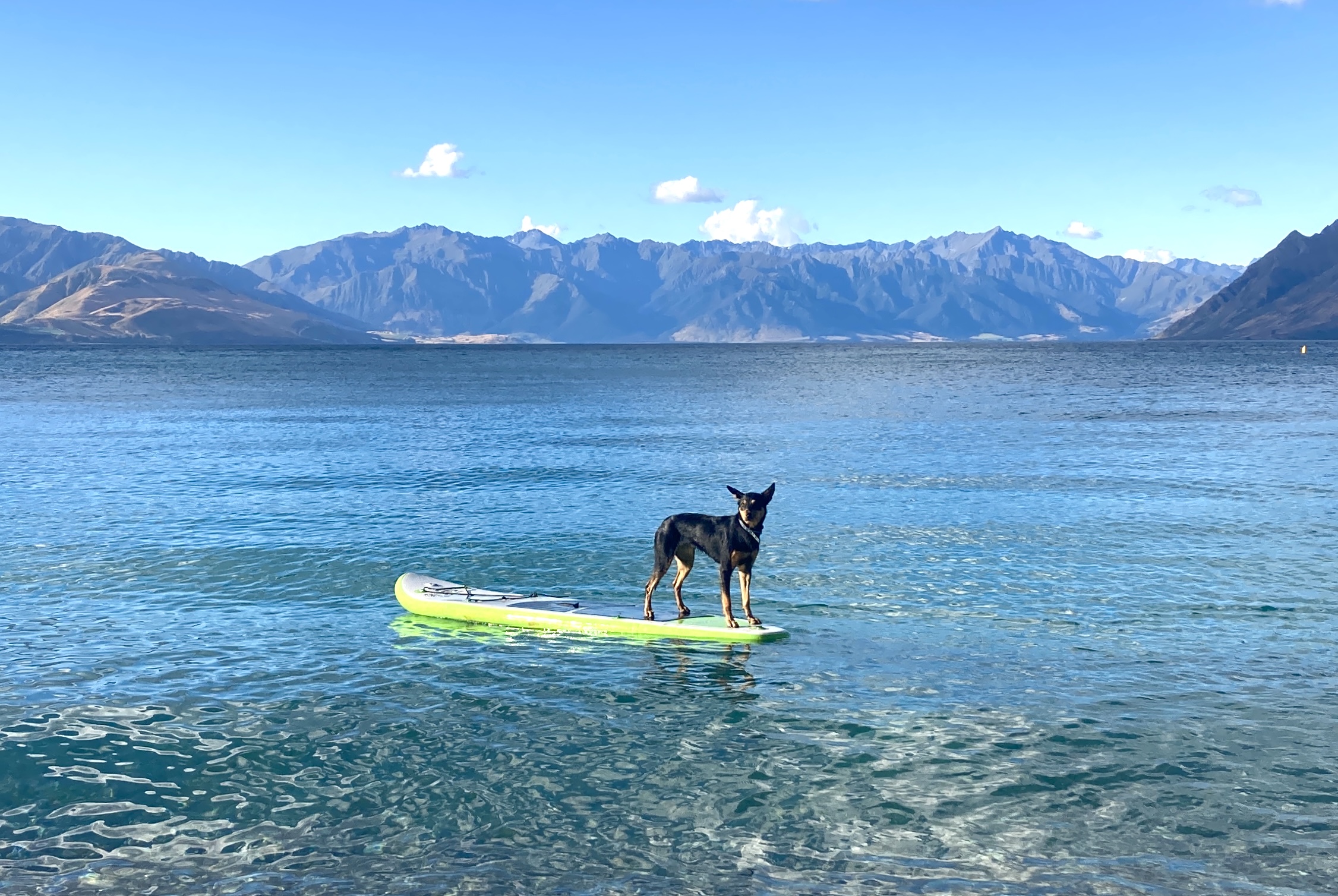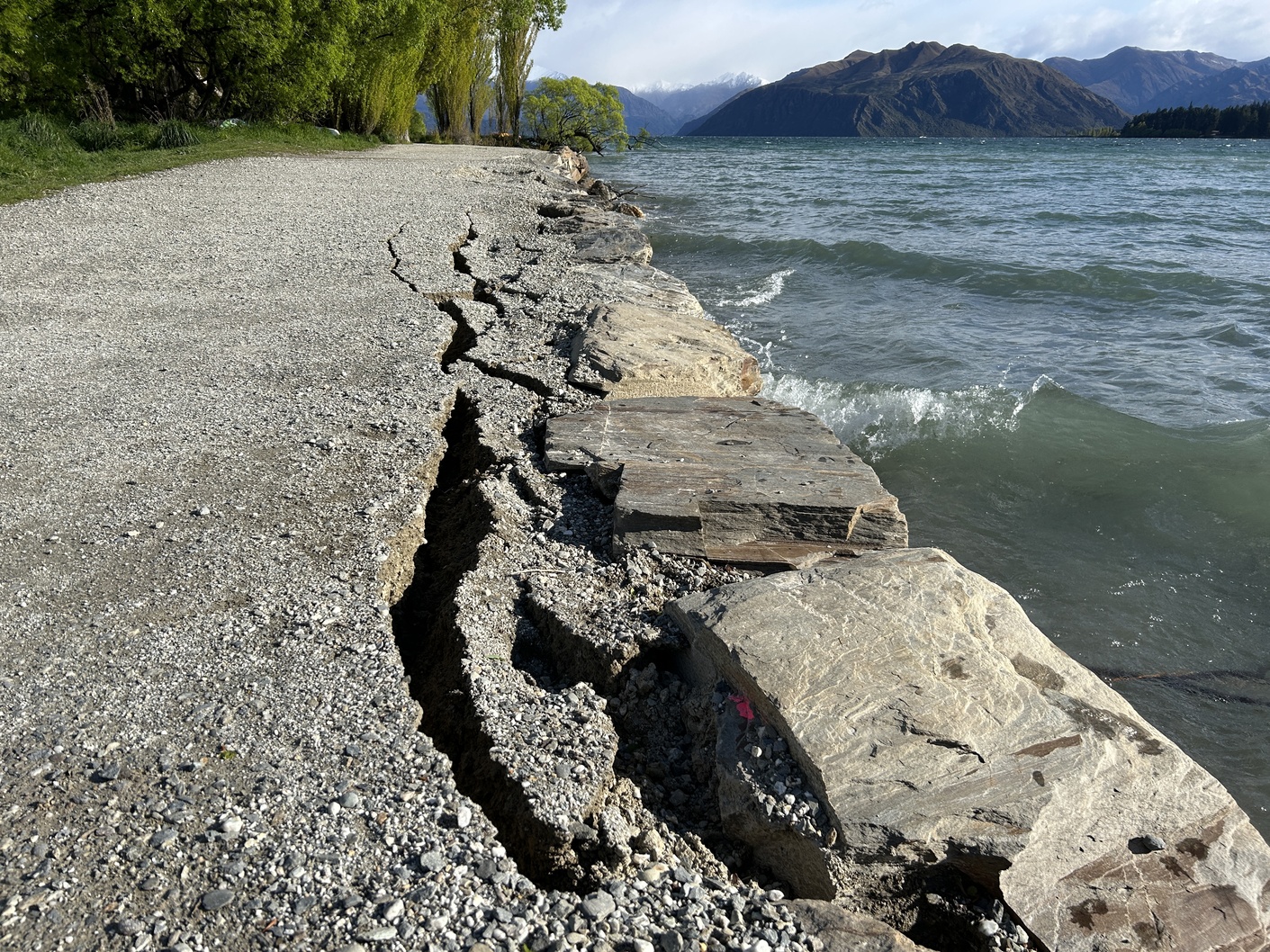Contact Energy ‘moving on’ after rejected proposal
Sue Wards, Editor
22 October 2025, 4:04 PM
 Lake Hāwea: A gift from previous generations, built for the nation to ensure affordable, secure energy for the country, Contact Energy says.
Lake Hāwea: A gift from previous generations, built for the nation to ensure affordable, secure energy for the country, Contact Energy says.Contact Energy CEO Mike Fuge says the company has moved on after its proposal to lower Lake Hāwea’s contingent storage level through the Fast Track Act has been rejected.
Infrastructure Minister Chris Bishop has told the power generator it cannot use the Fast Track process to lower the operating level of Lake Hāwea by two more metres.
Read more: ‘Elation, surprise, relief’ as lake level proposal rejected
Mike Fuge told the Wānaka App the hydro lake is “a gift from previous generations, built for the nation to ensure affordable, secure energy for the country”, and local stakeholders are getting in the way of that.
“We recognise that there is a debate that needs to be had between keeping these assets for the nation and local stakeholders who now wish to use that resource for other things,” he said.
The Wānaka App asked him for clarification on what “other things” stakeholders wish to use the lake for, and how this was stopping Contact from generating electricity, but did not receive a response by the time of publication.
His comments follow his appearance on a news talk show on Tuesday morning (October 21) where he was asked “how big an issue is Nimbyism?” in relation to the energy generator’s proposal for Lake Hāwea.

Contact CEO Mike Fuge, who says local stakeholders now wish to use the lake “for other things” did not respond to the Wānaka App’s question on what those things were.
Mike Fuge responded that all Contact was looking for was “an increased operation range… that was well established”.
“Nimbyism is always going to be an issue… And as a nation we’re just going to have to have that discussion. At the end of the day it’s an opportunity and a little bit of flexibility in our hydro schemes goes a long way.
“We should be grasping hold of the opportunity.”
Guardians of Lake Hāwea chair Geoff Kernick said he was puzzled by Mike’s comment.
“Contact does use the resource - they still operate the lake and it's a vital part of the hydro scheme,” he said.
A group of stakeholders “representing a range of Hāwea residents and interests in the Upper Clutha district” released a statement today (Wednesday October 22) saying the proposal to lower the lake level “would have drastic impacts on the health of the lake and all those who rely on its water – not just households, but businesses and farming interests between Hāwea and Cromwell”.
The group represented the Guardians, the Hāwea Community Association, the Hāwea Catchment Group, Devon Dairy Farms, three groups of residential bore users, the Upper Clutha Angling Club, and Glen Dene Tourism Group.
The group said the Minister’s decision was “a victory for common sense and a chance to focus on a lasting solution to the country’s energy needs”.
“Electricity security and supply is a critical issue for New Zealand as a whole and it needs a system-wide approach involving all generators in conjunction with the appropriate organisations such as Transpower, the Electricity Authority and the Commerce Commission,” they said.
“Contact Energy still has access to the extra water it wants, but the decision about when it can be used is made by Transpower as System Operator on behalf of all New Zealand, not a commercial decision by Contact on behalf of its shareholders.”
The Contact CEO said the decision was disappointing.
“Our team worked really hard on this to achieve a balance between local stakeholder concerns and the need for security of energy supply for the nation over the coming years,” he said.
He said the proposal would have had a significant, positive impact on “consumer prices, and the economy, not to mention energy supply”.
“We will continue to focus on our pipeline of renewable energy projects and playing our part [to] support the country’s energy security. That is our top concern.
“The more we build, the more we invest, the sooner we can bring down prices.”
PHOTOS: Supplied







